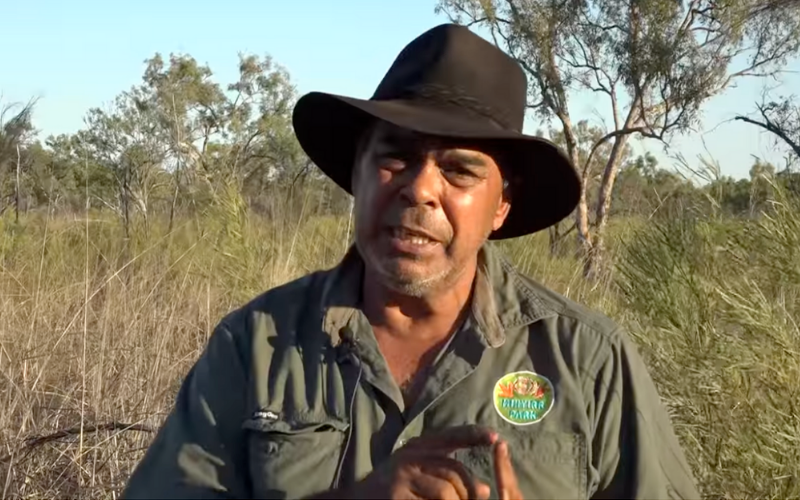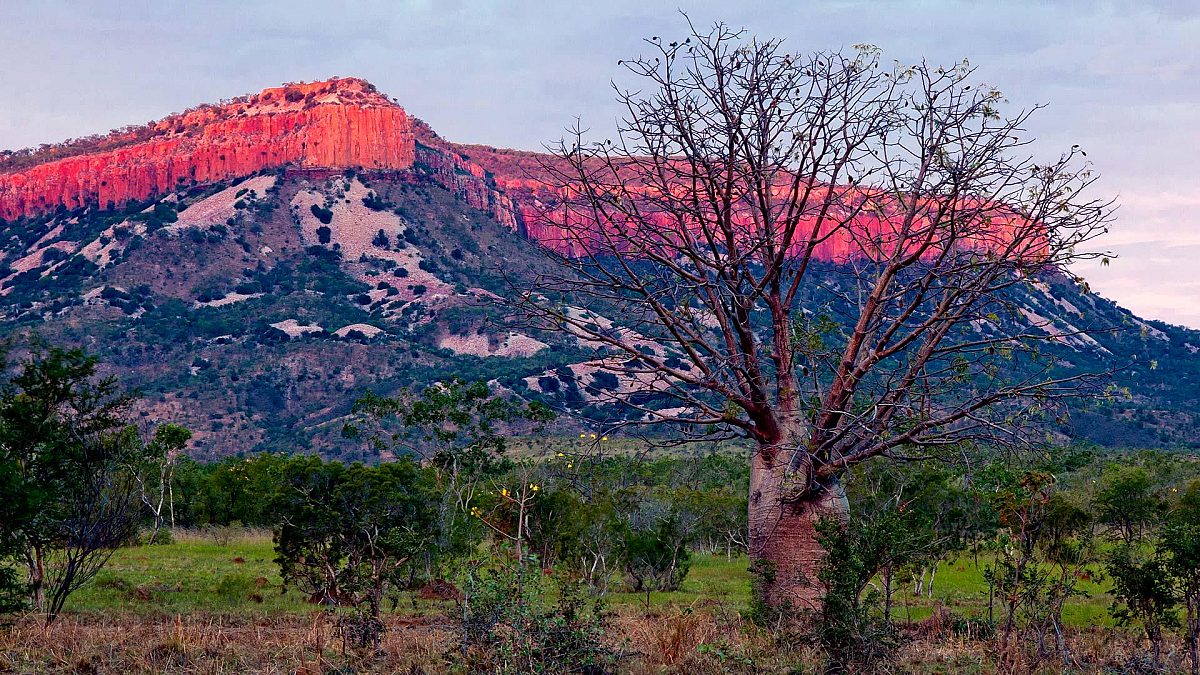
Traditional Custodians demand a frack-free Kimberley
This area should be a globally-recognised cultural landscape, not an exploration zone. WARNING: Aboriginal and Torres Strait Islander viewers are warned that the following article contains images and words of a deceased person. Mr Corpus' family have given permission to publish the following article.
The Kimberley is a vast, living cultural landscape across the north of Western Australia, where magnificent coastlines meet mighty rivers and ancient limestone ranges. It is known internationally for both its intact natural landscapes and its status as home to the world’s oldest continuous culture, with living connections going back more than 50,000 years.
Micklo Corpus was a Traditional Custodian from Yawuru Country, around Broome in the Kimberley. In 2006 the Yawuru people were handed exclusive possession Native Title rights for the Roebuck Plains Station. However, this did not give them the power to prevent exploration for gas fracking on their land, something he discovered when Buru Energy began fracking at Yulleroo, 70 kilometres east of Broome.
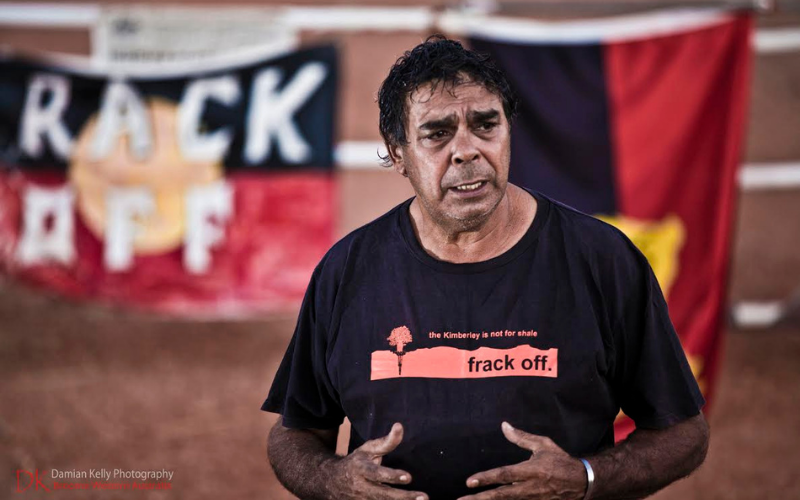
Jenita Enevoldsen, WA Senior Campaigner for the Wilderness Society, outlines what happened. “Back in 2010, Buru Energy started clearing land at Yulleroo to do test fracking. There was no community consultation with Traditional Custodians like Micklo Corpus or the broader local community for either land clearing or the test fracking.”
By 2014, Buru had drilled two exploratory wells at Yulleroo and Micklo took matters into his own hands, setting up camp at Yulleroo and peacefully protesting. In a 2015 video Micklo said, “I’m here looking after my country and making sure it’s not polluted by gas fracking companies. I’m not going anywhere, and I’m just exercising my Native Title rights.”Protect country, not destroy it
Under current state government legislation, fossil fuel ‘exploration permits’ are given without any public consultation. This ‘exploration’ is really destruction: bulldozers clear grid lines for seismic testing, with hundreds of thousands of kilometres approved across the Kimberley. Between 2009-2015, Buru Energy cleared more than 14,500 kilometres, equivalent to the distance from London to Perth.
This clearing affects water flows and the safe movement of wildlife, while allowing easier access for introduced predators. In an article in the SMH, Micklo said the surveys on Yawuru land had changed the country, altering the way water flowed, destroying medicine trees and anthills, and disturbing wildlife and its food sources.
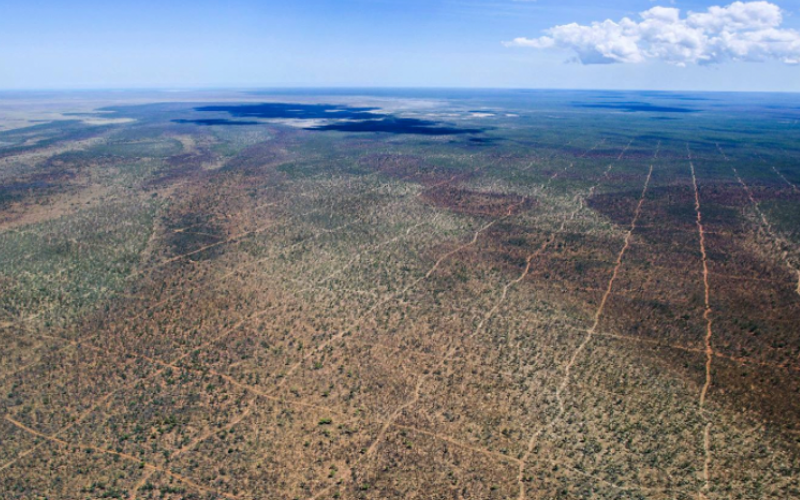
Australia is a signatory to the United Nations Declaration on the Rights for Indigenous Peoples (UNDRIP), which says that First Nations people should give ‘free, prior and informed consent’ to development on their land before it takes place. However, this right is not enacted under current legislation. As Micklo put it, “Under our traditional laws and customs, we’ve inherited the duty to look after this country. Buru Energy want to come to frack on our country. But we gave our free and prior and informed consent, and we said no to fracking.”
The fight is not confined to Yawuru land. The Kimberley is rich in resources: Australia’s largest shale gas reserve, the Canning Basin, lies under its red dirt. Fossil fuel companies plan large-scale fracking across the region, with the potential for up to 40,000 gas wells. Micklo Corpus, Environs Kimberley, Lock the Gate Alliance and many others have helped to raise awareness of this threat, and the government’s backing of this climate-wrecking industry over people and nature.
Where are our rights?
It shouldn’t have come to this. Jenita sums up the situation. “First Nations people are on the front line of fracking and clearing of their Country, and they don't have the power to say no. We need to embed free, prior and informed consent into our laws and legislation to empower Indigenous people to have their say and be in control of their cultural heritage.”
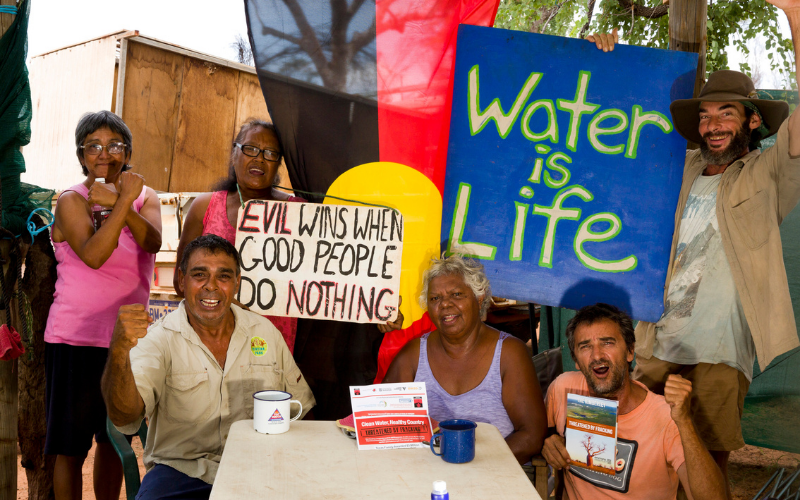
WA Labor have committed to giving landholders and Traditional Custodians veto rights for fracking and explorative activities. However, this policy has not yet been enacted into legislation or practice. Until it does, communities across the Kimberley and supporters from around the country have vowed to keep fighting, to stop this precious, intact cultural landscape from being ruined by fossil-fuel development.
